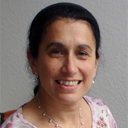Americas Regional Seat
The Civil Association for Equality and Justice (ACIJ) is a nonpartisan and nonprofit organisation dedicated to defending the rights of the most disadvantaged groups in society and strengthening democracy in Argentina. Founded in 2002, ACIJ aims to defend the effective application of the Constitution and the principles of rule of law; promote compliance with laws that protect disadvantaged groups and elimination of all discriminatory practices; and to contribute the development of practices of participatory and deliberative democracy.
The work of ACIJ’s Anti-corruption Program focuses on addressing the problems of corruption in Argentina. The program’s view is that democracy necessarily requires the input of citizens in strengthening institutions, as an indirect exercise of popular sovereignty, thus the participation of citizens to face corruption is a prerequisite for positive and sustainable results.
ACIJ seeks to facilitate the public access to clear and organised information related with corruption cases and trials in progress, in order to foster transparency and accountability in the prosecution by the Judiciary and to promote civic engagement against impunity.

He participated in different kinds of transparency-related projects ranging from the local level to the global, has coordinated different publications and has been part of national and international CSO networks linked to these issues. He also has experience participating in international and multi-stakeholder initiatives, such us the Open Government Partnership (OGP), the Global Partnership for Social Accountability (GPSA) or the Transparency and Accountability Initiative (T/AI).
Renzo has a profound knowledge of the civil society sector in Latin America and has long-term relationships with CSO leaders. His experience in elaborating monitoring reports from a civil society perspective (with UNCAC, MESICIC or OGP, for example) will serve him well for confronting the challenges of getting stronger monitoring mechanisms for the UNCAC.
Renzo is a lawyer, graduated from the University of Buenos Aires School of Law and professor of Human Rights at the same university.
East Asia, Central Asia and Pacific Regional Seat
Transparency International Malaysia (TI-M) is an independent, non-governmental and non-partisan organisation committed to the fight against corruption. Founded in 1998, TI-M is registered with the Registrar of Societies Malaysia as the Malaysian Society for Transparency and Integrity (ROS: 1649) and is the accredited National Chapter of the Berlin-based Transparency International.
TI-M works with the private sector, civil society, government, media and wider public to combat corruption and promote integrity. Civil engagement is vital for our work and advocating for policy reform continues to be the change we need to see.
TI-M continues to pursue and fight for structural change that ensures social justice, cleaner institutions and transparent handling of public funds. We aim at working with all stakeholders, including the marginalized groups and the youth.
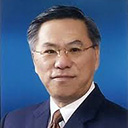
Europe Regional Seat 1
Corruption Watch is a UK based anti-corruption NGO that investigates and exposes cases of corporate corruption. In particular we track and monitor allegations of corruption involving UK companies and how the UK enforcement and regulatory system deal with these allegations. We also closely monitor all corruption trials. Out of this specific case work we develop policy positions and advocacy work. Two particular focuses of work are corruption in the defence sector, and the use of corporate settlements and whether these are effective in deterring and sanctioning corruption.
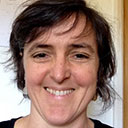
Europe Regional Seat 2
Stefan Batory Foundation (SBF) is focused on building an open, democratic society – a society of people aware of their rights and responsibilities, who are actively involved in the life of their community, country and international society. Since 2000, the Foundation has run the Public Integrity Program (earlier the Anti-corruption Program). The Program focuses on efforts to ensure the transparency of the legislative process and opening it up to the voice of citizens; the limitation of the risks of corruption, nepotism and cronyism linked to the conflict of interest in public life; and to strengthen the role and legal protection of whistleblowers. The Program’s team monitors processes and events which affect the integrity of public life, and makes proposals and recommendations aiming at improving the standards of public life and curbing corruption. The team further takes measures to develop, disseminate and implement solutions which comply with the standard of good governance and accountable government. The Foundation cooperates with other organizations and institutions both in Poland and internationally.

Middle East and North Africa Regional Seat
I WATCH is a Tunisian youth-led watchdog organisation aiming at enhancing transparency and fighting corruption. Founded in 2011, I WATCH has been advocating for more transparency and openness in the work of the government. In addition, I WATCH has been keen on engaging citizens in the fight against corruption. I WATCH has launched a number of online initiatives in order to hold decision-makers accountable.
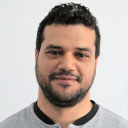
South Asia Regional Seat
The South Asian Institute of Advanced Legal and Human Rights Studies (SAILS) aims to be a regional centre of excellence focusing on offering cutting edge research and advanced post-graduate education in law and human rights. Its mission is to further the potential of South Asia by identifying the contemporary problems that slow the development of human rights in the region and to promote an understanding of the common trends and traditions of legal systems in South Asian countries. It intends to devise appropriate means for using law as a catalyst of change for stakeholders; adopt innovative ways to implement the economic and social rights of citizens; and identify ways to use the law to remove obstacles and legally empower the people.
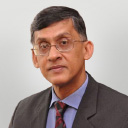
Mr. Hasan was a researcher with BRAC and published The Net: Power Structure in Ten Villages (Dhaka, 1980). He contributed to Beyond Hartals Towards Democratic Dialogue in Bangladesh (2005) published by UNDP Bangladesh in 2005. Recently he co-authored The Real Politics of Bangladesh: The Inside Story of Local Power Brokers (2015).
Sub-Saharan Africa Regional Seat 1
Socio-Economic Rights And Accountability Project (SERAP) was created in 2004 and registered as a non-governmental, non-profit organisation under Nigerian Law. It focuses specifically on economic and social rights in Nigeria and on anti-corruption work, addressing all four areas where change is needed.
SERAP works to hold government and public officials at the local, state and federal levels accountable for acts of corruption which are conducive to violations of socio-economic rights of citizens. SERAP also aims to ensure Nigeria’s full compliance with the human rights and anti-corruption treaties to which it has voluntarily subscribed.
SERAP is dedicated to promoting transparency and accountability in the use of Nigeria’s natural resources and believes that Nigeria’s large natural resource base should be used to meet the basic needs of its population. SERAP is committed to increasing the legal protection for internationally recognised economic, social and cultural rights, and to securing respect for these rights.
Recognising the unexplored potential of international human rights law for increasing transparency, accountability and protection of economic and social rights in Nigeria, SERAP was created to promote these principles and values. The organisation aims to use human rights law to encourage the government and others to address developmental and human rights challenges such as corruption, poverty, inequality and discrimination.

Prior to joining SERAP in 2016, he worked as a Magistrate. Timothy has also served in a humanitarian capacity as a Disaster Relief Personnel in the North Eastern part of Nigeria ravaged by insurgency. He has attended several workshops and seminars and presented papers on a wide range of issues relating to corruption in the Judiciary. He had previously worked as a Legal Coordinator for Human Rights Volunteer Corps (HRVC), based in Enugu and Awka. He is a consultant to many organisations in Nigeria on issues relating to human rights, corruption, child labour and human trafficking.
Sub-Saharan Africa Regional Seat 2
AfriCOG is an independent, non-profit making organisation with a mandate to provide cutting edge research on governance and public ethics issues and, monitor governance fundamentals in both the government and the private sector. AfriCOG’s governance and anti-corruption reform initiatives are aimed at addressing the structural causes of Kenya’s governance crisis by a knowledgeable citizenry.
AfriCOG’s mission is to be a leading think tank that will stimulate, influence and encourage society to address corruption and bad governance. To this end, AfriCOG engages in innovative information and knowledge brokerage, holistic capacity building, quality research, effective mobilization and vigilant monitoring and by retooling civil society to respond in a more sophisticated manner to complex governance problems. AfriCOG’s vision is of a Kenya in which civic vigilance over the management of public affairs is a permanent part of the national culture, and in so doing, pushes for increased access to information on all matters of public interest.
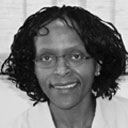
She has also served on the International Programme Committee of the 12th International Anti-Corruption Conference in 2006, as a member of the founding steering committee of the Open Government Partnership, and is a member of the board of the Global Initiative Against Transnational Organized Crime. She is also Vice Chairperson of the African Leadership Centre.
International Member Organisation Seat 1
ARTICLE 19, the Global Campaign for Free Expression and Information is a registered UK charity founded in 1987 with offices in Bangladesh, Brazil, Kenya, Mexico, Myanmar, Senegal, Tunisia and the USA. ARTICLE 19’s mission is “to promote, protect, develop and fulfill freedom of expression and the free flow of information and ideas in order to strengthen global social justice and empower people to make autonomous choices. Its vision is of a world where ALL people can speak freely, actively participate in public life and enjoy media freedom without fear, censorship or persecution.
ARTICLE 19 believes that freedom of expression, freedom of the press and access to information is a fundamental human right, central to individual freedoms and human rights. We also believe that freedom of expression is an empowerment or cornerstone right, in that it enables other rights to be protected and exercised. It allows people to demand the right to health, to a clean environment and to effective implementation of poverty reduction strategies. It not only increases the knowledge base and participation within a society but can also secure external checks on state accountability, and thus prevent corruption that thrives on secrecy and closed environments.
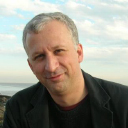
Previously he was Director of the FOI Project at Privacy International, and a co-founder and Policy Director of the Electronic Privacy Information Center in Washington, DC. He has been a Research Fellow at the Kennedy School of Government at Harvard University, a Non-Resident Fellow at the Center for Internet and Society at Stanford Law School and a Visiting Research Fellow at the School of Law, University of Leeds. He has a Juris Doctor in Law and Public Policy from The Columbus School of Law, The Catholic University of America in Washington, DC.
International Member Organisation Seat 2
Global Financial Integrity (GFI) promotes national and multilateral policies, safeguards, and agreements aimed at curtailing the cross-border flow of illegal money. In putting forward solutions, facilitating strategic partnerships, and conducting groundbreaking research, GFI is leading the way in efforts to curtail illicit financial flows and enhance global development and security. Our mission stems from the estimate that $1 trillion in funds which are illegally earned, transferred or utilized are spirited out of developing countries annually. Of this, $500 billion a year ends up in western accounts. This constitutes the most damaging economic condition hurting the poor. Illicit capital flows enable drug cartels, terrorist organizations and tax evaders to move cash around the globe, undermines the goals of the World Bank and other lending institutions, strips developing nations of critical resources, and contributes to failed states.
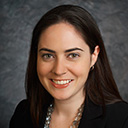
Individual Member Seat

Coalition Secretariat (Permanent Seat)
Transparency International – Secretariat (TI-S), the global civil society organisation leading the fight against corruption, brings people together in a powerful worldwide coalition to end the devastating impact of corruption on men, women and children around the world. Through its International Secretariat in Berlin, Germany, and more than 90 national chapters around the world, Transparency International works at the national and international levels to create change towards a world free of corruption. The TI Secretariat focuses on the global and regional fight against corruption, and assists national chapters in enhancing their anti-corruption skills. It coordinates initiatives within geographical regions and provides methodological support on the tools and techniques to fight corruption. It also serves as the driving force on international issues such as anti-corruption conventions, and other cross-border initiatives. It serves as a knowledge management centre, capturing and disseminating best practice and developing new approaches to tackle corruption. The TI Secretariat has provided secretariat support to the UNCAC Coalition since the Coalition’s creation in 2006 and has coordinated the Coalition’s work at the UNCAC Conference of States Parties in 2006, 2008 and 2009.
